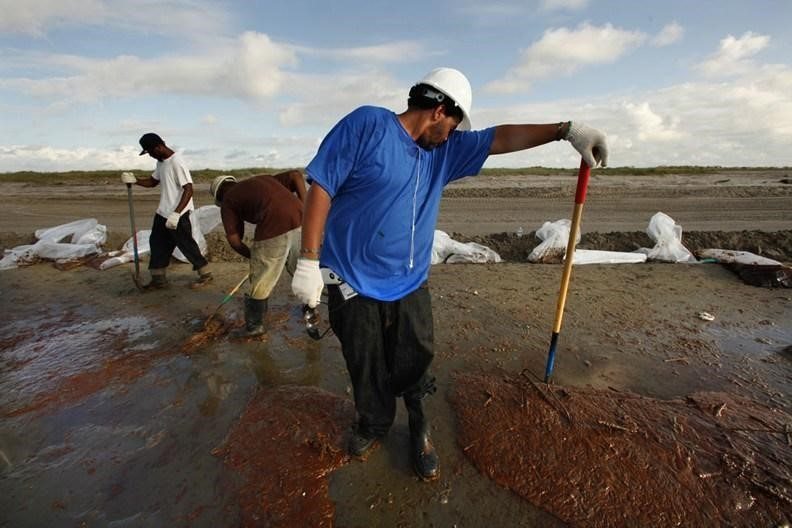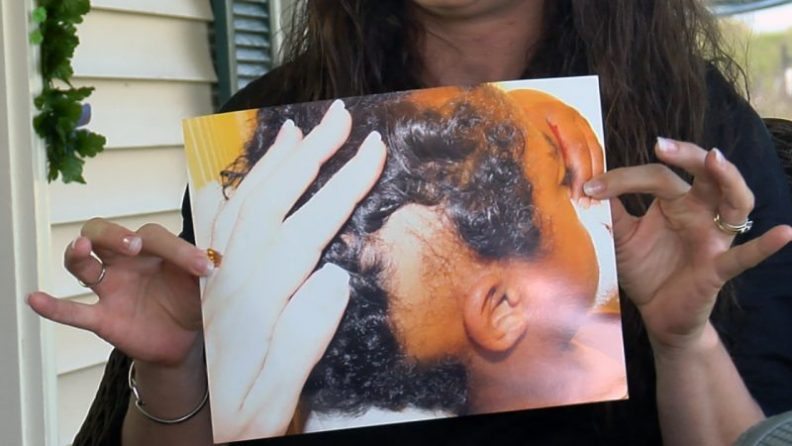Despite years of well-documented chronic oil pollution, vocal resistance from grassroots groups, and clear evidence that offshore drilling can only lead us closer to climate catastrophe, our government still wants to open the Gulf of Mexico to more fossil fuel exploitation.
This story is a personal one for me.
I was an oil field diver for 20 years, so I know the business well. I love and respect the ocean and I have seen first-hand the dangers of offshore drilling and how inadequate spill response technology is. I have worked on well blowouts and I understand that large oil releases like this cannot be safely or effectively cleaned up. I thought that a disaster this large would be a global game changer, bringing to light the consequences of these extreme oil operations.
I hoped that this event would create an informed and intelligent debate on the true risks of our fossil fuel future.
So together with a team of writers and producers whose previous projects include “The Road to Fallujah,” “Amazon Gold,” “The Cove,” and “Racing Extinction,” I created “The Rising.” For six years, we’ve been covering the lives of Gulf Coast residents and the use of toxic chemical dispersants in BP’s ‘cleanup’ operations. The film, slated for release in the fall, exposes both the public health consequences of extreme oil operations and the extensive efforts to keep those impacts from the public eye.
For us, public health is the smoking gun in changing national dialogue and political momentum on energy policy. “The Rising” intends to push human health to top priority in all oil operation considerations. An industry forced to protect public health above all else will be also forced to protect environmental health.
What We Learned About Public Health and Oil Spills from the BP Disaster
Following the Deepwater Horizon blowout, millions of gallons of chemical dispersants — including the now-infamous Corexit — were sprayed on the surface of the Gulf and released at the wellhead in efforts to break-up and sink the oil. Many scientists and toxicologists now believe that the oil-Corexit combination resulted in up to 52 times greater toxicity to humans and the environment than oil alone.
Through six years of work with toxicologists, biologists, medical professionals, and community members, “The Rising” documents how dispersants like Corexit were sprayed over a five-state area, bringing the public into contact with toxins through cleanup operations, air pollution, contaminated seafood, and swimming in unsafe waters.
Most spill workers were not provided with the recommended personal protective equipment.

Oil spill cleanup workers in the Gulf rarely received the full set of protective gear they were supposed to have to prevent exposure to oil and chemical dispersants. Photo via “The Rising.”
“We asked for respirators and they told us that would be an act for termination … Our bodies were covered in oil — and still no personal protective gear.”
BP oil spill cleanup workers on working conditions they experienced
And while communities in the Gulf were being kept in the dark about its harmful effects, the use of Corexit had already been banned or strictly regulated in Europe. The official safety data sheet for Corexit warns that it causes an “immediate (acute) health hazard.” Exposure has been linked to kidney damage, liver damage, neurological damage, rapid weight loss, temporary paralysis, vomiting episodes, and more.
Long-term, the chemical combinations are anticipated by scientists to cause numerous cancers and lead to premature death.
“When you put people in a corrosive environment and with the things that this dispersant does, that is an interesting experiment … if you don’t care about the people.”
Congressman Jerrold Nadler (D-NY)
All told, the United States spends almost $3 billion annually cleaning up oil spills on lakes, rivers, and streams, but the human cost of disasters like the BP spill is impossible to fully quantify. The only way we can understand is through stories, and that’s what we want to do with “The Rising” — share the stories of communities on the frontline fighting oil industry exploitation.



